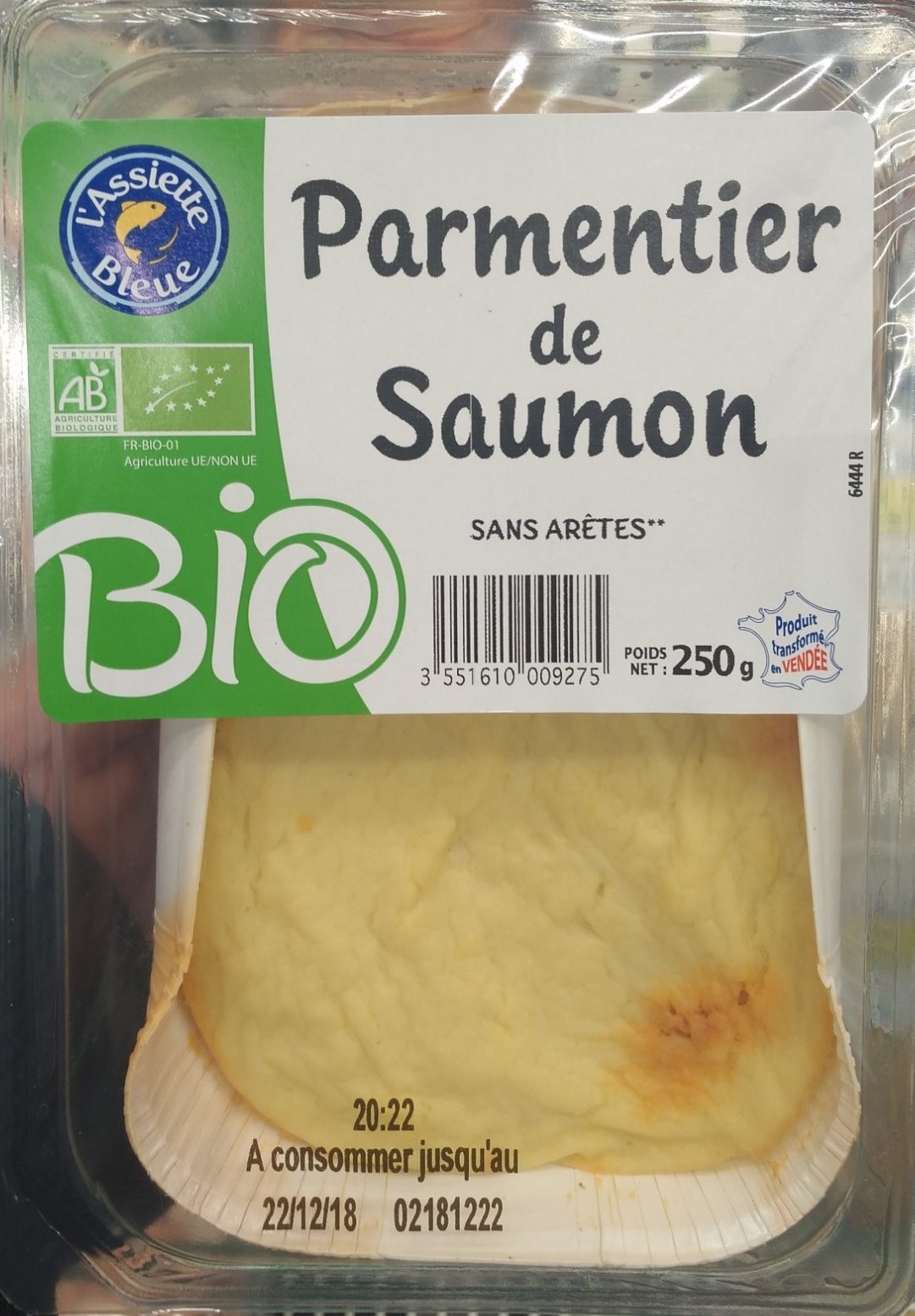Parmentier de saumon - L'Assiette Bleue - 250 g
This product page is not complete. You can help to complete it by editing it and adding more data from the photos we have, or by taking more photos using the app for Android or iPhone/iPad. Thank you!
×
Barcode: 3551610009275 (EAN / EAN-13)
Quantity: 250 g
Brands: L'Assiette Bleue
Categories: Meals, Meals with fish
Labels, certifications, awards:
Organic, EU Organic, Non-EU Agriculture, EU Agriculture, EU/non-EU Agriculture, FR-BIO-01, AB Agriculture Biologique

Manufacturing or processing places: Vendée, France
Traceability code: FR 85.182.007 CE - Pouzauges (Vendée, France)
Countries where sold: France
Matching with your preferences
Environment
Packaging
Transportation
Labels
Report a problem
Data sources
Product added on by kiliweb
Last edit of product page on by packbot.
Product page also edited by moon-rabbit, openfoodfacts-contributors, sebleouf, yuka.Zi9reUVhNElyZjgwcGNVZnhnaUkvODFGOWNHd0JtNllGYlV5SVE9PQ.
Last check of product page on by sebleouf.











